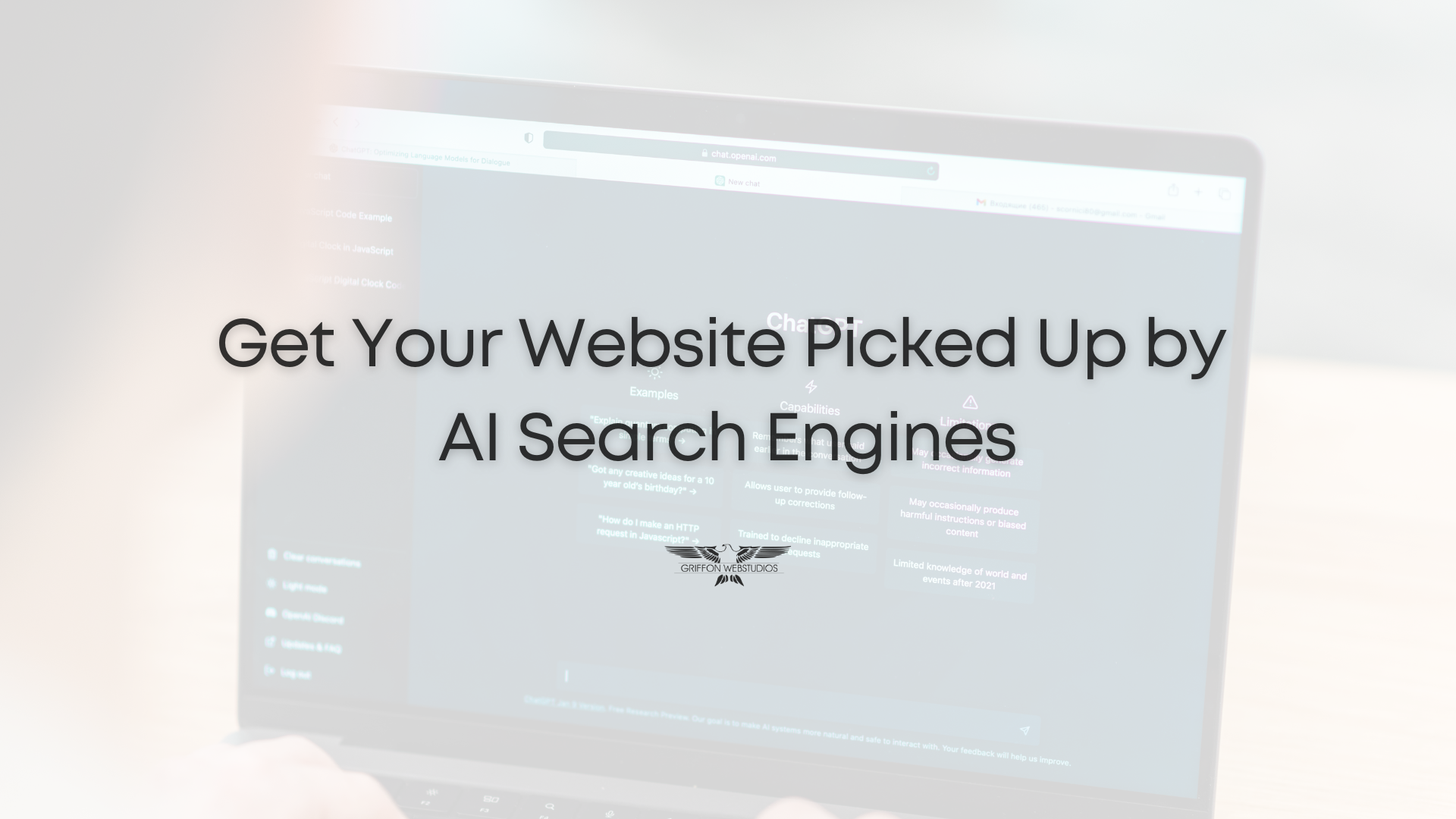The way people search for information online is changing fast. Traditional search engines still matter, but more users are now turning to tools powered by artificial intelligence that deliver direct, conversational answers instead of just links. If your website isn’t optimized to be visible in these new systems, you risk losing a massive share of traffic to competitors who adapt quicker.
So how do you make sure your business shows up on AI Search Engines? Let’s break it down.
What Makes AI Search Engines Different?
Unlike Google’s classic algorithmic ranking system that prioritizes backlinks and keyword density, AI search engines like Perplexity, Google AI, and even ChatGPT’s browsing capabilities are designed to understand context, intent, and authority at a much deeper level. They pull from multiple sources, synthesize information, and deliver it back to the user in a natural way.
That means the old tricks like keyword stuffing, thin content, or chasing backlinks won’t cut it anymore. Instead, success depends on how well your website communicates expertise, clarity, and structured knowledge.
Step 1: Build Content That AI Can Understand
AI thrives on clarity. To improve your chances of being featured in an AI search engine result:
-
- Write in plain, direct language that answers questions fully.
- Anticipate user queries-what’s the exact question your customer would type or speak? Then answer it directly in your content.
- Use headers and sub-headers to create clean structure. AI crawlers love clear hierarchy.
Think of your website like a teacher’s guide: the clearer you explain, the more likely AI is to quote you.
Step 2: Strengthen Your E-E-A-T
Google introduced E-E-A-T (Experience, Expertise, Authoritativeness, and Trustworthiness) years ago, and now AI search engines are adopting similar principles. They want to showcase information that’s reliable and backed by authority.
Ways to build this:
-
- Add author bios showing real-world expertise.
- Cite reputable sources and link out where necessary.
- Publish case studies, testimonials, and data-driven insights to prove your credibility.
AI systems weigh your reputation heavily before pulling your site into an answer.
Step 3: Use Structured Data
Schema markup isn’t just for Google. AI search engines use it too. Structured data gives AI context on what your product is, what your article covers, who wrote it, and more.
For example, adding FAQ schema to a service page makes it more likely that AI will surface those Q&As in a conversational result. Similarly, product schema ensures your listings can be recognized as official and accurate.
Step 4: Cover Topics in Depth, Not Just Keywords
If AI is trying to summarize the web, shallow content won’t make the cut. Instead of writing a 300-word blog post stuffed with keywords, go deeper. Address related questions, explore “what if” scenarios, and include actionable takeaways.
Example: If your keyword is “domestic battery defense attorney”, don’t just define what the term means. Go further and explain the types of charges, possible defenses, the legal process, what clients should expect in court, and common misconceptions. A page that thoroughly answers these connected questions is far more likely to be chosen by an AI search engine than one with just a brief definition and contact info.
AI favors sources that give complete, well-rounded answers.
Step 5: Optimize Beyond Google
Yes, Google is experimenting with AI Overviews, but don’t stop there. Platforms like Perplexity, ChatGPT with browsing, and niche AI search engines are gaining users quickly. Make sure your brand appears wherever your customers might be searching.
That could mean:
-
- Publishing on multiple platforms (Medium, LinkedIn, Quora).
- Ensuring your website is crawlable and fast.
- Staying active with authoritative guest posts and thought leadership.
The more touch points you create, the more likely AI will recognize your site as a trusted source.
Getting Picked Up by an AI Search Engine
This isn’t about gaming the system, it’s about making your website the kind of resource AI wants to recommend. If your content is clear, authoritative, and well-structured, you stand a strong chance of being surfaced in conversational results that millions of users now rely on.
Search is evolving, but visibility is still the name of the game. The difference is that now you need to think about how both humans and machines read your content. Those who adapt fastest will own the next era of online discovery.





